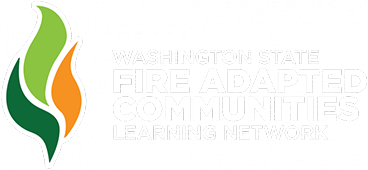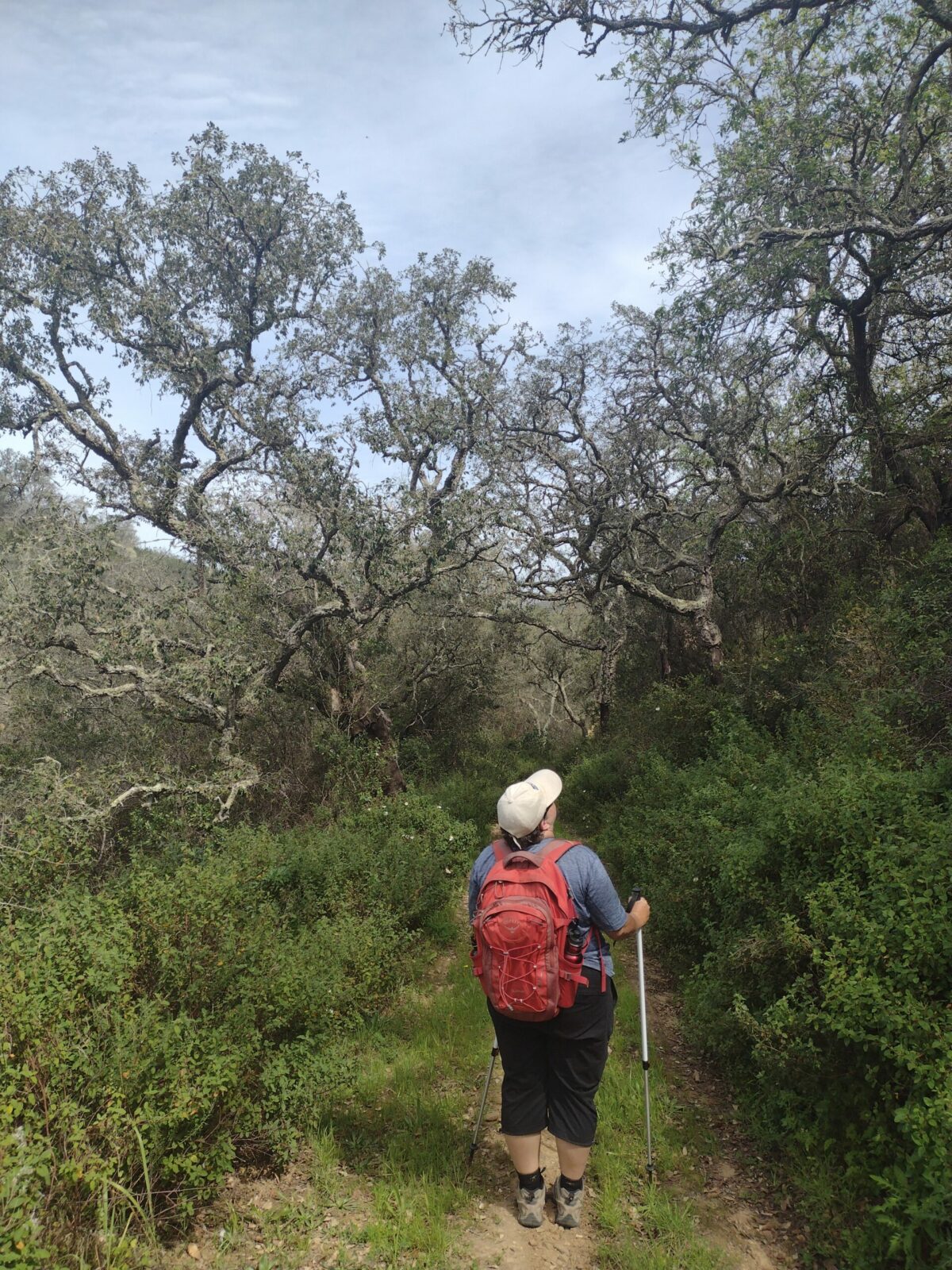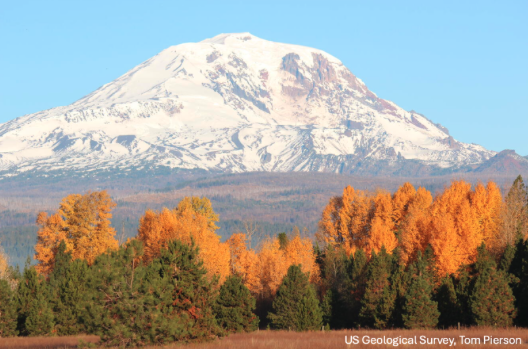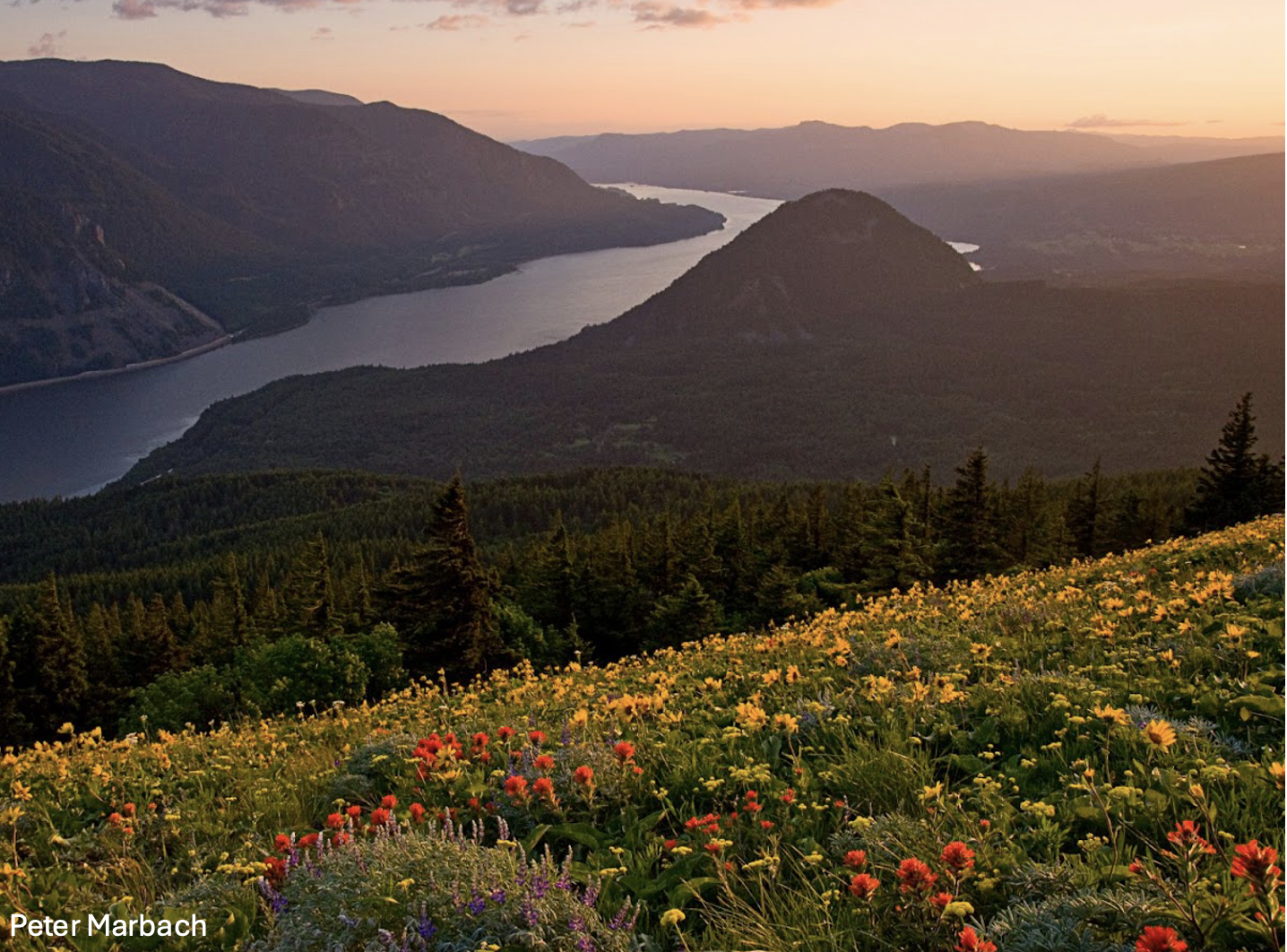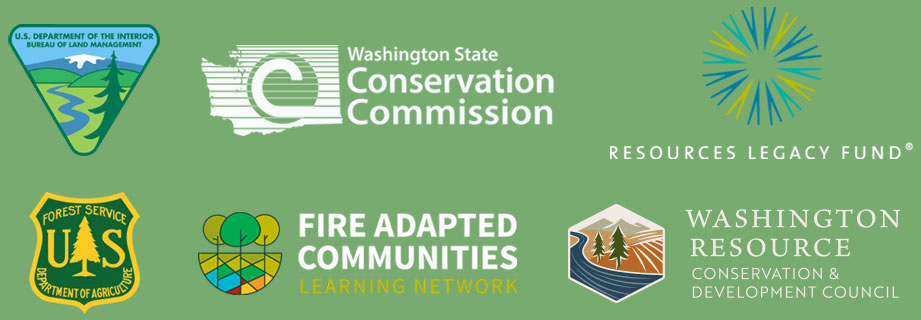Kirsten Cook hiking through typical mixed holm and cork oak forest in March 2023. Sadly this area burned in a large fire in July 2023. Photo: Kirsten Cook
About the Author: Kirsten Cook is a freelance communication professional with a background in environmental education and wildfire adaptation. From 2011-2021, she worked for the Okanogan Conservation District, leading their wildfire resilience, K-12, and community outreach programs. She is an avid traveler and discovered Safe Communities Portugal (SCP) while planning a trip. In 2023, Kirsten met with David Thomas, the founder and President of SCP, to learn more about SCP’s unique role in Portugal, especially regarding wildfire. This is part two of a two-part post. Part 1 of “From Around the World: Safe Communities Portugal” can be found here.
Kirsten: Have you seen changes in people’s behavior around wildfire preparedness? What more would you like to see?
David: People are generally more aware and understand they can reduce risk by cleaning their land. Before and after photos have helped demonstrate exactly what is needed to be prepared for fire season. People are also paying more attention to elevated fire risk and fire starts thanks to social media and government alert systems.
More needs to be done on risk awareness and mitigation. People still expect fire services to be there and put out every fire quickly. We need to help build an understanding that a firefighter will not be behind every tree. Residents need to take more ownership to understand their risk and take action, with help from the government, rather than total reliance on it.
In terms of fighting fires, it is important to emphasize that it involves many different entities, including the local firefighters (Bombeiros), of whom around 40% in the Algarve are volunteers. There are also forest fire brigades (Sapadores), land management agencies, and aerial firefighting pilots and crews, basically a whole group of civil protection agents that work together as a team to provide input into suppression depending on the type and size of the fire. (To learn more about the fire response structure and partner roles in Portugal, check out “Who Does What in a Major Fire” Part 1 and Part 2,” written by David.)

More education on fire behavior is also needed. For example, there was a 2021 fire in a populated area of the Algarve where it became apparent that people did not fully understand the effect of wind and how embers aid in spreading fire. Ash and debris were being blown into people’s yards over a kilometer away, starting spot fires in landscaping receptive to ignition. Luckily, only the yards were damaged.
Kirsten: Are you excited about any new wildfire preparedness initiatives?
David: Pre-fire planning and land preparation have become more robust. The next challenge is building upon the work that commenced after the 2017 fires and bringing together different government and civil society entities for a coordinated effort toward resilience. Portugal is a member of the United Nations Office for Disaster Risk Reduction and is making progress in the “Making Cities Resilient 2030” (MCR2030) initiative. This effort has grown to include 51 municipalities nationwide whose members meet to share knowledge and best practices and celebrate accomplishments.
There has been a major shift in how money is spent in government expenditures. Five years ago, only around 20% was allocated to preparedness and prevention, with 80% allocated to firefighting. Now, the distribution is evenly split: 50% for prevention and preparedness and 50% for fire suppression. Combined with a considerable increase in available funding, this makes great sense. SCP commends the very focused and visionary leadership in the Ministry of Internal Administration and the President of Autoridade Nacional de Emergência e Proteção Civil (ANEPC or National Authority for Emergencies and Civil Protection) for carrying this forward and developing many other initiatives.
In January 2023, the 16 Algarve Association of Municipalities (AMAL) members launched a pilot project to establish a regional platform to reduce the risk of disasters. Its prime objectives are to create a space for cooperation between municipalities and the private, academic, and social sectors and create a network to transfer and value knowledge while reducing silos between groups. Work is ongoing.
Kirsten: In our Fire Adapted Communities Learning Networks in the US, we have a tradition called “Fantastic Failures,” where we share lessons learned from something that didn’t go as planned. Is there a Fantastic Failure from SCP you can tell us about?
David: SCP had a conference about climate change and the impacts on tourism about five years ago, where the turnout was well below expectations. All the previous SCP conferences had high attendance, so the organizers were surprised, especially given the VIPs scheduled to speak. Two things had caused the problem: one, all the invitations had gone to general info email addresses at various organizations, and two, it clashed with an event hosted by the police that day. So, always target your invitation to specific individuals, and check your partners’ calendars!
Kirsten: Is there anything from the Washington Fire Adapted Communities Learning Network that caught your interest?
David: The concept of “smoke-ready communities.” There was a 2022 fire whose smoke drifted over 60 km (38 miles) and had people asking SCP, “Where is the fire??? I see smoke!!!” Government sources had only provided basic guidelines on dealing with smoke and, at that time, had not promoted it very much. SCP used their Facebook page to get more info to the public so that people understood where the fire was and how to deal with smoke. As fires become more frequent with drought and heat waves, smoke will be an ongoing issue that needs good, actionable communication.
Many thanks to David Thomas for his time helping to create this article and to him and his team of volunteers at Safe Communities Portugal for developing valuable resources for those living in and visiting Portugal.
See Also:
Sharing Fire Adaptation Strategies in Spain by Chris Chamber, Ashland Fire and Rescue
Part 1: Who Does What in a Major Fire by David Thomas, Safe Communities Portugal
Part 2: Who Does What in a Major Fire by David Thomas, Safe Communities Portugal
